You might think that one person can’t make a difference, but collectively, the decisions we make add up. When asked about their decisions, countless people have said things like, “well, just because I stop eating meat doesn’t mean the meat industry will go bust” or “just because I don’t visit the Toronto Zoo doesn’t mean it will close,” etc. And yes, if everyone continues to think this way, then nothing will change.
But what if everyone recognized the impact that their own personal decisions have when they’re traveling? What if everyone thought instead, “by not buying McDonald’s in Mexico, and instead, buying from a local street food vendor, I can change that family’s entire life”?
This is the impact of ethical travel.
What is ethical travel?
Ethical travel is mindful, conscious travel. It’s making every decision from a place of awareness and understanding how each decision we make has an impact. Traveling and exploring other cultures is so fulfilling and can really help you learn and grow as a person. I know for a fact I wouldn’t be who I am today without it. But each choice you make will have an impact, and you have control over whether that’s a positive or negative one.
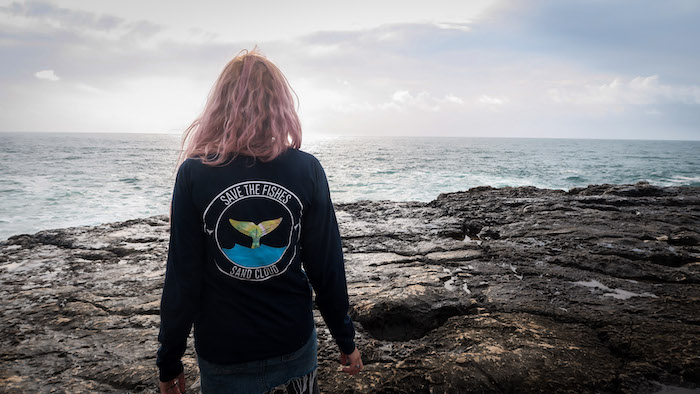
Traveling ethically means choosing destinations, accommodation, excursions/activities, and food strategically. Yes—it is a bit more time-consuming and research-intensive. But it’s beyond worth it for the local economies, local people, the environment, the animals and yourself! Plus, I’m going to share some tips that will make your trip planning much more straightforward. So, let’s get into it!!
1. Don’t support the exploitation of animals
I’m going to start with this point as it’s the one I am personally most passionate about. More often than not, animal tourism comes at a significant cost to the well-being of the animals involved. As travelers/tourists, we don’t see the cruelty animals are subjected to, the poor living conditions and the lack of socialization.
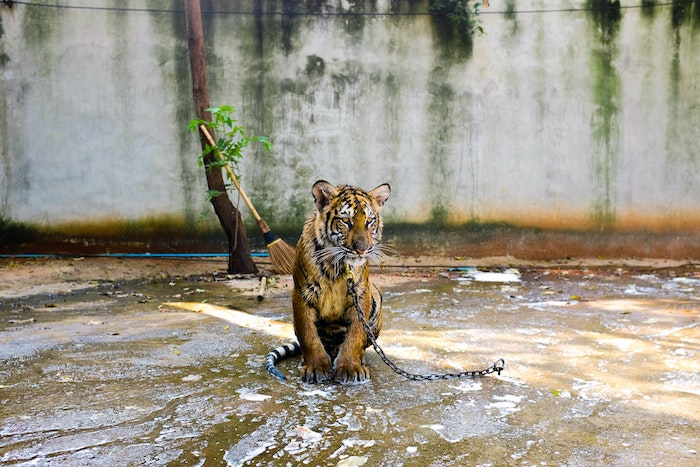
Wild animals are not meant to live in captivity, nor should they be used for our entertainment. You might want a cool picture holding a koala or a bucket list experience riding an elephant, but this is NOT natural, and these animals are being forced to endure a life of misery as a result. Interestingly enough, a study by World Animal Protection found that 93% of people that visit animal attractions do so because they love animals. So, why would they want to support their suffering?
Social media has been especially problematic as it normalizes taking selfies or pictures with captive animals. There is a difference between snapping a selfie when you see a wild parrot in a tree behind you and posing with an adult tiger that’s been drugged up and declawed.
Another thing to be aware of is the slew of “sanctuaries” that are essentially gloried zoos. Now, there are so many AMAZING sanctuaries out there doing impactful work for wild animals, and I don’t want to discount that. They deserve our support, and many of them are run entirely on donations, the money from educational visits and volunteer labour. I volunteered for three months at Sibu Wildlife Sanctuary in Nosara, Costa Rica, which was a life-changing experience. If you’re an animal lover, then you can make a genuine difference in the lives of mistreated, orphaned and injured wildlife by choosing to support ethical sanctuaries.
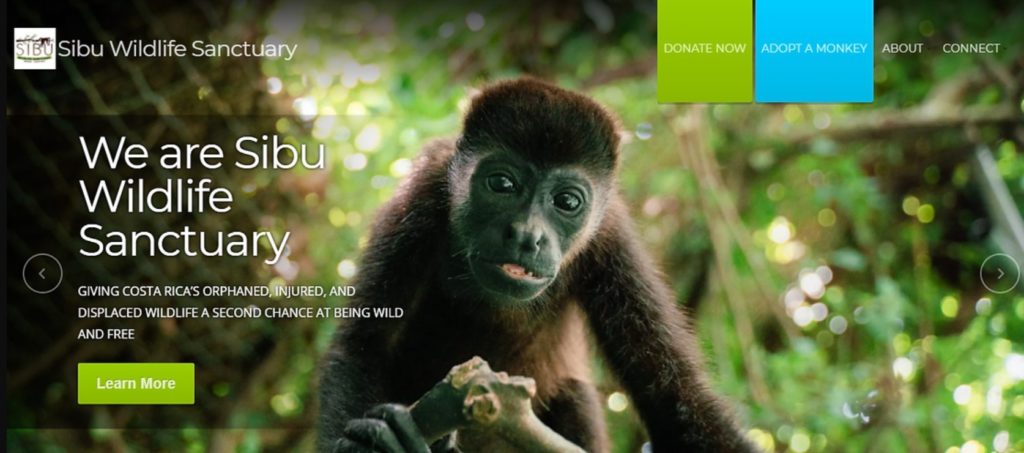
Just because there are a lot of “bad guys” out there doesn’t mean they all are. Here is a great article that breaks down how you can tell if a sanctuary is ethical or not, plus includes some fantastic ethical ones. I’m clearly very passionate about this, so stay tuned for another post where I go more into detail about this topic.
The most important points to remember:
- Do your research
- Don’t pay for photos with captive animals
- Don’t support restaurants or hotels that have captive animals
- Don’t attend attractions that force animals to perform
2. Support local businesses
Supporting local businesses while you travel not only helps make a positive contribution to local communities but also enables you to have a more fulfilling, cultural experience. Eating in a small, roadside taco place, where the food is prepared in a local style, by a husband and wife team is way more enjoyable than hitting up Taco Bell. Plus, it means you are helping keep them in business!
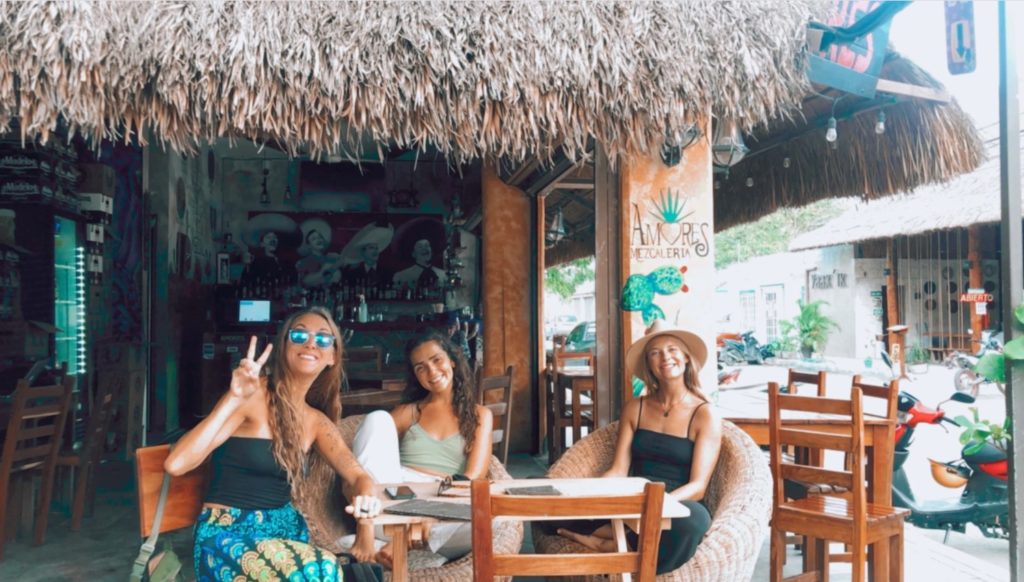
Supporting local businesses has a domino effect on the destinations that you travel to. If we want to continue enjoying different cities and locations, then we need to support their economy. The roads need to be maintained, and transportation services provided so travellers can continue to access the locations. Locals pay taxes, which contribute to infrastructure, and by you supporting local businesses, the owners can afford to pay those taxes.
Accommodation and restaurants need to be available so people will keep visiting these locations, and they will continue to thrive. If big corporations and chains receive all the business, the local establishments will close down, and the destinations will lose much of their culture and charm.
Instead of staying at a Four Seasons, choose a local B&B. Instead of buying groceries from a huge chain, go to a local fruit stall. Your experience will be higher quality, plus you’ll have a positive impact on the local economy.
3. Be environmentally conscious
Being environmentally conscious is even more critical when you’re travelling as it is in your day-to-day life. But wait, shouldn’t it always be top of mind? Well, YES, of course. But for those of us who live or base ourselves in a first-world country, it is easy to forget about things like carbon emissions and recycling, as there are programs and initiatives in place to help combat that.
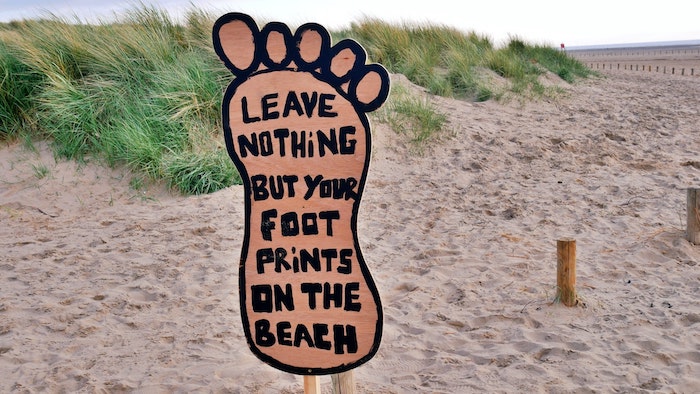
When travelling abroad, especially to developing countries, it’s essential to remember that they may not be as environmentally progressive as other places you’ve travelled to. So, it’s up to you to make ethical decisions.
a. Avoid single-use items whenever possible while travelling. Bring a reusable water bottle and takeaway container for when you have leftovers from a restaurant. And instead of buying travel-size toiletries, or buying ones in plastic, use bar soap and shampoo bars.
b. We know that flying is bad for the environment, but there are some ways you can minimize your impact when taking flights. Travel light. The heavier your baggage, the more fuel that is used by the airplane. It might sound minuscule, but imagine the difference it would make if everyone packed even a few pounds lighter. Everything adds up! Also, opt for direct flights whenever possible.
c. Try to avoid purchasing imported goods when you’re on the road. Instead, buy seasonal fruit from markets or locally handmade souvenirs.
d. Eat a plant-based diet. The animal agriculture industry has a devastating impact on the environment. By eating a diet centered around plants both when you are and aren’t traveling, you can hugely reduce your negative environmental impact.
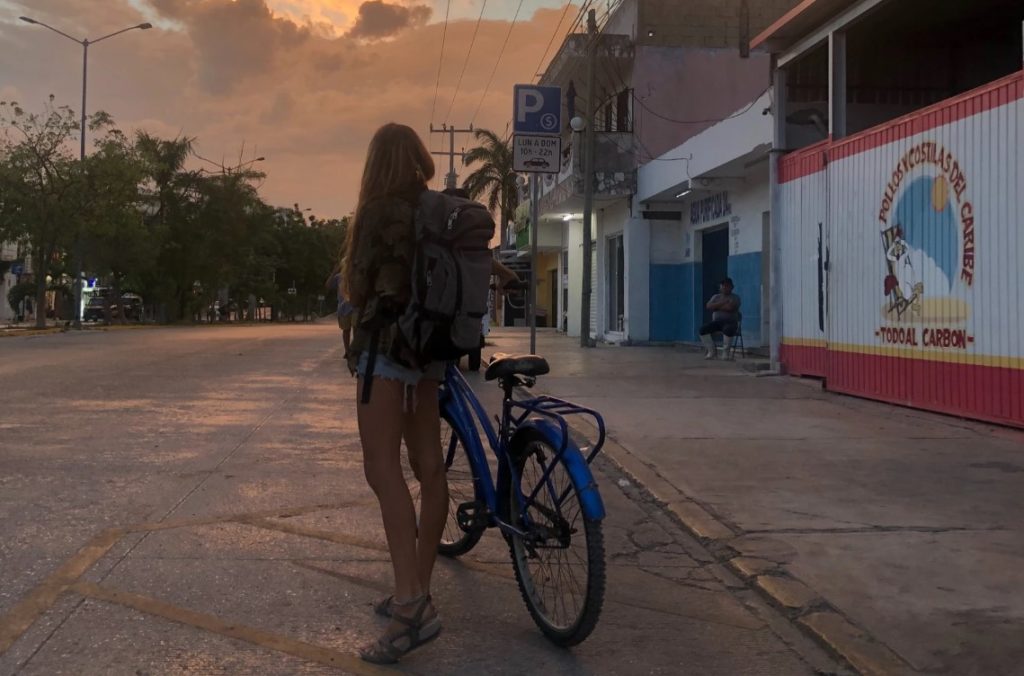
e. Bike or walk! Biking and walking is the best way to explore cities anyway and ensures you aren’t contributing to emissions caused by other forms of transportation. And if you are travelling a distance that is farther than you can bike or walk, try to choose public transit instead of private.
f. If you are going to be swimming in the ocean, make sure you use reef-safe sunscreen. Our planet’s beautiful coral reefs are in severe danger, and chemicals found in common sunscreens are a considerable contributor. Not only does it negatively impact the reefs, but also all the marine life that rely on the reefs. Instead, choose a sunscreen that uses physical UVA and UVB filters like zinc oxide or titanium dioxide. Find out more here.
4. Respect local culture
A huge part of being an ethical traveller is showing respect for local cultures and their values. Every country has a different code of ethics, different religious beliefs and different ideas. That is what makes them so interesting and exciting to visit!
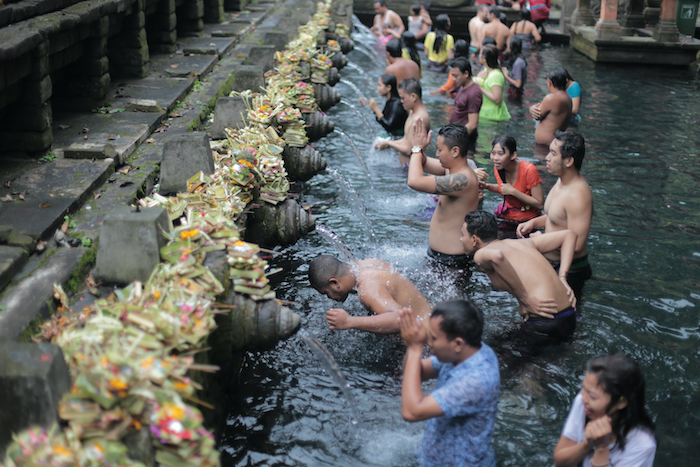
Show an understanding and respect for locals and their culture, and they will show you the same in return. Take the time to learn a bit about the background of the places you are visiting and learn a few common phrases in their language. You are a visitor there, after all. There are so many beautiful and fantastic cultures in the world, and we want to keep it that way. By refusing to keep an open mind and forcing your way of life on other cultures, you are threatening diversity.
No one culture is better or worse than another. Your own lifestyle might be different from those in the places you visit. But isn’t that why you travel in the first place? Try to adapt and be open to what you could learn and discover as a result!
By travelling more ethically we can all use our bucket-list experiences to have a positive impact on the environment, animals and society as a whole!
Get more like this—Sign up for our daily inspirational newsletter for exclusive content!
__
Photo: Unsplash; Sibu Wildlife Sanctuary; Kandice Vincent




